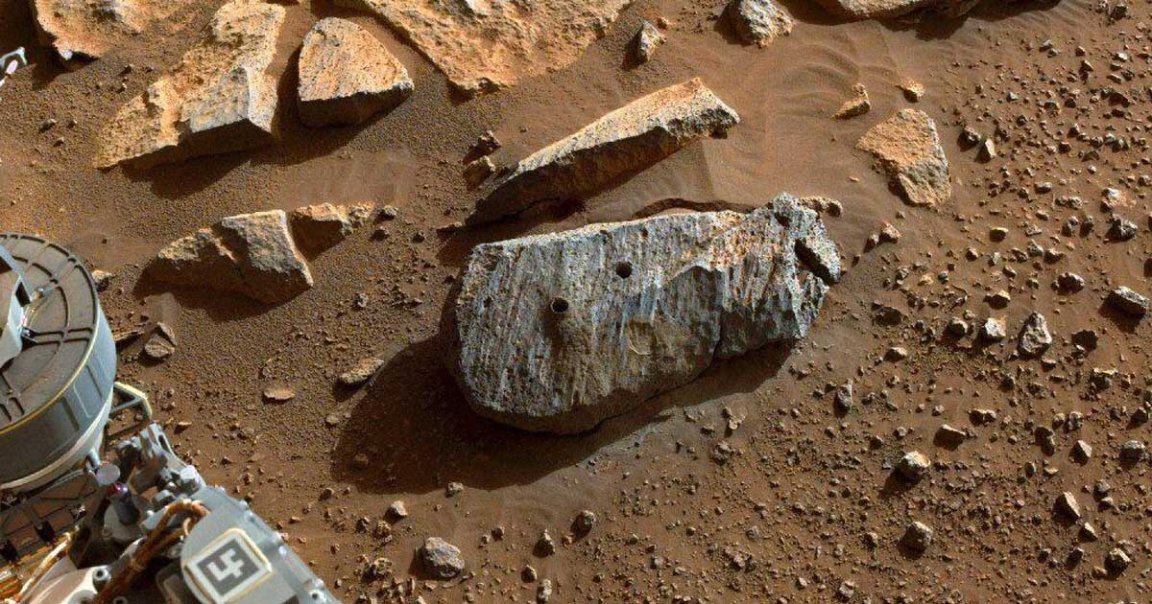
If you’re worried about NASA’s plan to bring Mars rocks back to Earth to study them, you probably don’t need to be.
In interviews with The Philadelphia Inquirer, scientists maintained that there’s very little risk involved in bringing samples from Mars back home.
As Rutgers’ Nathan Yee, a former NASA official who teaches astrobiology, reminded the Inquirer, Mars rocks have already fallen to Earth in the form of meteorites “without any adverse effects to our biosphere.”
Yee noted that because Mars’ current atmosphere is very inhospitable to life as we know it — not to mention that it lacks a magnetic field to deflect solar radiation, and is therefore bombarded constantly with harsh rays — it would be hard enough for life to survive on the red planet, much less make it alive to Earth.
“There has to be a long, long time of evolution for microbes to learn how to interact and attach onto animal cells, enter animal cells, and use the machinery of an animal cell to replicate,” he told the newspaper. “That’s a very complex choreographed dance.”
NASA itself has repeatedly reiterated that the Mars Sample Return Mission, which it’s undertaking in tandem with the European Space Agency, is safe and that there is a “low likelihood of risk” given Mars’ arid, UV-blasted climate.
Nevertheless, at least one ex-government official is hellbent on highlighting what he considers the safety concerns of the mission.
“We won’t know if it’s sterile or not,” retired Federal Aviation Administration and Mars aficionado Thomas Dehel told the Inquirer of the samples. “We should know if we bring something back to Earth whether it’s sterile or not, to do some sort of crude test up front to see if there’s any kind of biological life.”
Dehel, who runs a blog criticizing NASA and some news outlets for purportedly “covering up” Mars sample safety concerns, posited that a good way to figure out whether the rock samples contain lethal or dangerous pathogens would be to test them remotely on the International Space Station.
NASA, however, shot down that concept because, as the agency told the newspaper, the ISS doesn’t have equipment sensitive enough to glean all necessary info from the Martian rock samples.
While Rutgers’ Yee is not himself concerned about some sort of deadly pathogen from Mars running rampant from space rocks brought to Earth, he is curious to see what NASA will do if, as he told the Inquirer, the samples turn up “remnants of past life.”
On our end, we’ll definitely be watching closely, popcorn at hand.
READ MORE: NASA says its plan to bring Mars samples back to Earth is safe, but some people are worried [The Philadelphia Inquirer]
More on the Mars rock blues: Scientists Worried NASA Will Infect Earth With Deadly Martian Pathogens